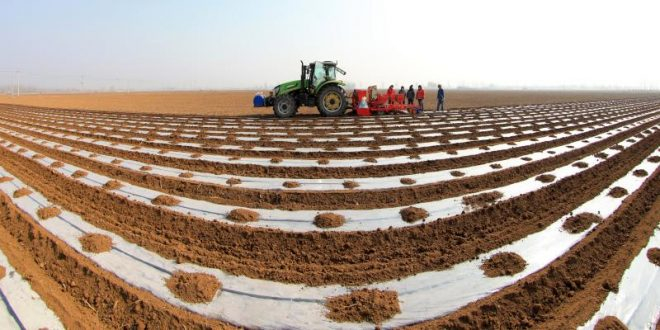Traditionally, potato growers prepare their potato beds for the following spring in the late autumn, when their other crops require less attention. The time-tested method provides advantages, but it also raises issues, such as a decline in soil fertility, a reduction in crop nutrient availability, and an increase in greenhouse gas emissions.
Lethbridge College is conducting a new study to find out how to move toward environmentally sustainable agricultural techniques while still ensuring the greatest outcome for farmers. The three-year, USD446,500 initiative is being led by Dr. Rezvan Karimi, a research scientist with the Mueller Irrigation Group, and is being sponsored by Results Driven Agriculture Research (RDAR).
To create ideal soil structure conditions in the spring, current autumn bedding procedures for potato crops include irrigation, fertilizer application, plowing, and the building of beds. To determine how each bedding formation influences yield, soil nutrient levels, and nitrous oxide emissions, Karimi’s team will evaluate three different bedding formations: a standard fall bedding, a spring bedding after having a winter cover crop, and a spring bedding without a winter cover crop. This is the first project in Alberta that is known to have looked into how potato bedding affects emissions and soil erosion.
“When producers prepare to bed in the fall and apply fertilizer, there is a big lag time between nutrient application and crop uptake. And during the winter, we have soil erosion, especially in the Lethbridge area where we have strong chinook winds, which blow off the topsoil and the fertilizer, so that will decrease the nutrient use efficiency. We also see nutrient loss through nitrous oxide emissions from the soil, which not only decrease the available nutrients for crops but are also an environmental concern,” Karimi said.
The irrigation research and demonstration farm at Lethbridge College will serve as the site for the field testing. To determine the effects of bedding options, timing, and their interactions with irrigation techniques on potato yield and soil health, the research will combine field tests and computer models. Producers will benefit from the findings since they will have additional information to take into account when attempting to maximize their potato yield.
A source: https://www.potatobusiness.com







